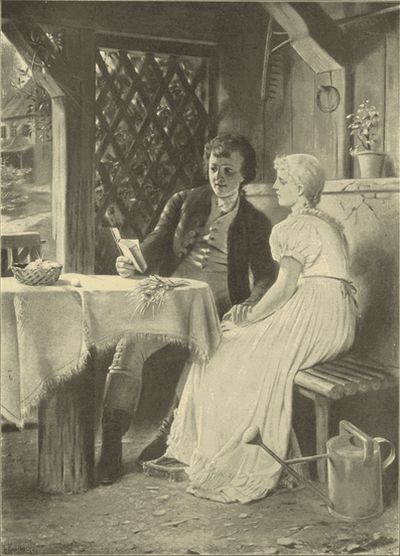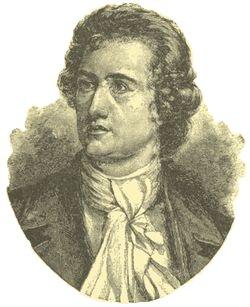Johann Wolfgang von Goethe, born on August 28, 1749, in Frankfurt am Main, is widely regarded as one of the greatest literary figures in German history and a central figure in world literature. Goethe's multifaceted talents spanned not only literature but also philosophy, science, and diplomacy.
 Goethe's literary career began with the publication of his novel The Sorrows of Young Werther in 1774, which became an instant success and established him as a prominent writer. This novel, depicting the tragic tale of a young man's unrequited love, captured the spirit of the Sturm und Drang (Storm and Stress) movement, emphasizing intense emotion and individualism.
Goethe's literary career began with the publication of his novel The Sorrows of Young Werther in 1774, which became an instant success and established him as a prominent writer. This novel, depicting the tragic tale of a young man's unrequited love, captured the spirit of the Sturm und Drang (Storm and Stress) movement, emphasizing intense emotion and individualism.
One of Goethe's most significant contributions to literature is his magnum opus, Faust. This two-part dramatic work, published in 1808 and 1832, explores themes of ambition, desire, and redemption, following the scholar Faust's pact with the devil, Mephistopheles. Faust is celebrated for its profound philosophical insights and its innovative blend of poetic forms.
Goethe's impact extended beyond literature. He was a key figure in the Weimar Classicism movement, promoting cultural and intellectual growth. His friendship with Friedrich Schiller, another literary giant, led to a fruitful collaboration that enriched German literature and thought.
 In addition to his literary achievements, Goethe made significant contributions to natural sciences. His work in botany, anatomy, and optics, particularly his theory of colors, showcased his deep curiosity and analytical mind. He served as a statesman and held various administrative positions in Weimar, contributing to the cultural and political life of the region.
In addition to his literary achievements, Goethe made significant contributions to natural sciences. His work in botany, anatomy, and optics, particularly his theory of colors, showcased his deep curiosity and analytical mind. He served as a statesman and held various administrative positions in Weimar, contributing to the cultural and political life of the region.
Goethe's legacy endures through his diverse body of work, which continues to inspire and influence writers, thinkers, and artists worldwide. His ability to transcend genres and disciplines makes him a quintessential figure of the Enlightenment and Romantic eras. Johann Wolfgang von Goethe passed away on March 22, 1832, in Weimar, but his intellectual and cultural contributions remain timeless.
|
 Goethe's literary career began with the publication of his novel The Sorrows of Young Werther in 1774, which became an instant success and established him as a prominent writer. This novel, depicting the tragic tale of a young man's unrequited love, captured the spirit of the Sturm und Drang (Storm and Stress) movement, emphasizing intense emotion and individualism.
Goethe's literary career began with the publication of his novel The Sorrows of Young Werther in 1774, which became an instant success and established him as a prominent writer. This novel, depicting the tragic tale of a young man's unrequited love, captured the spirit of the Sturm und Drang (Storm and Stress) movement, emphasizing intense emotion and individualism.  In addition to his literary achievements, Goethe made significant contributions to natural sciences. His work in botany, anatomy, and optics, particularly his theory of colors, showcased his deep curiosity and analytical mind. He served as a statesman and held various administrative positions in Weimar, contributing to the cultural and political life of the region.
In addition to his literary achievements, Goethe made significant contributions to natural sciences. His work in botany, anatomy, and optics, particularly his theory of colors, showcased his deep curiosity and analytical mind. He served as a statesman and held various administrative positions in Weimar, contributing to the cultural and political life of the region.








